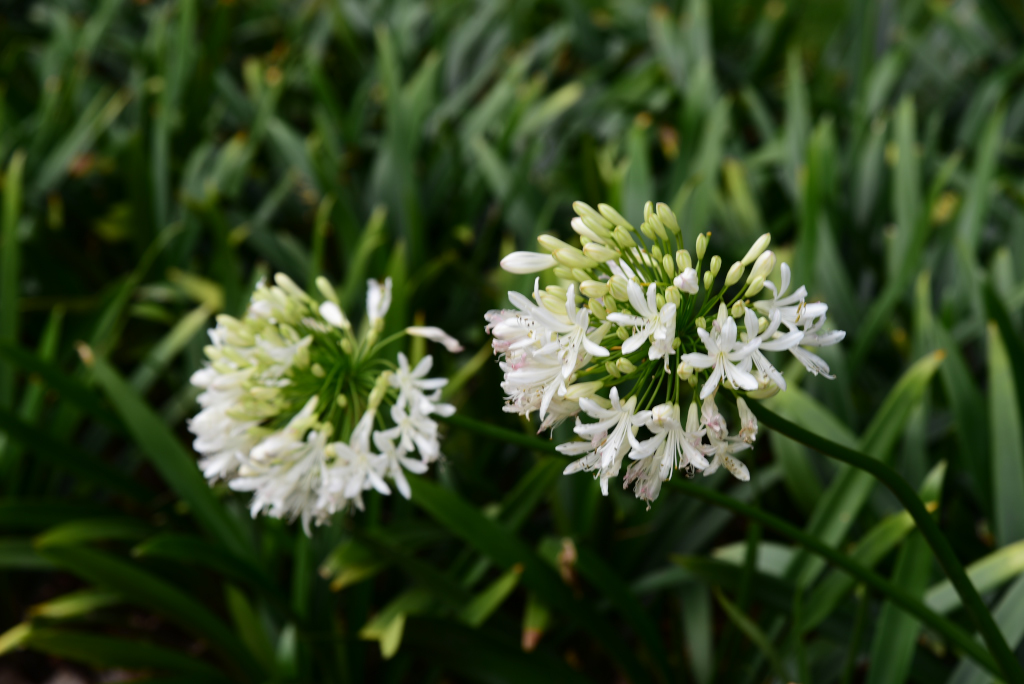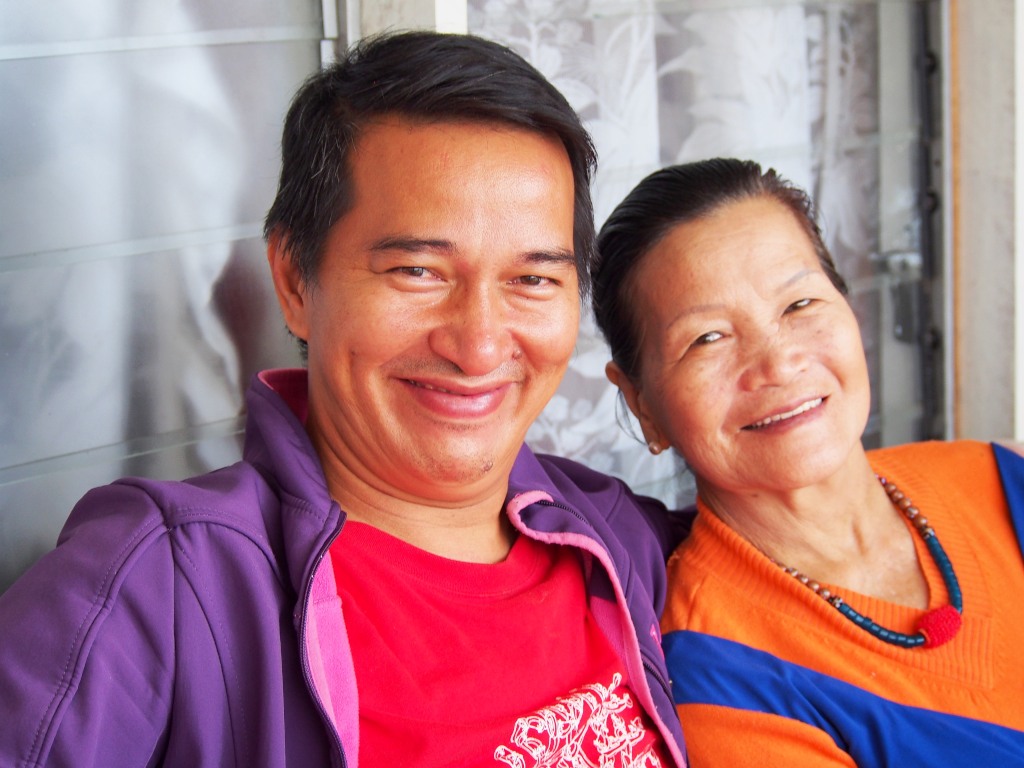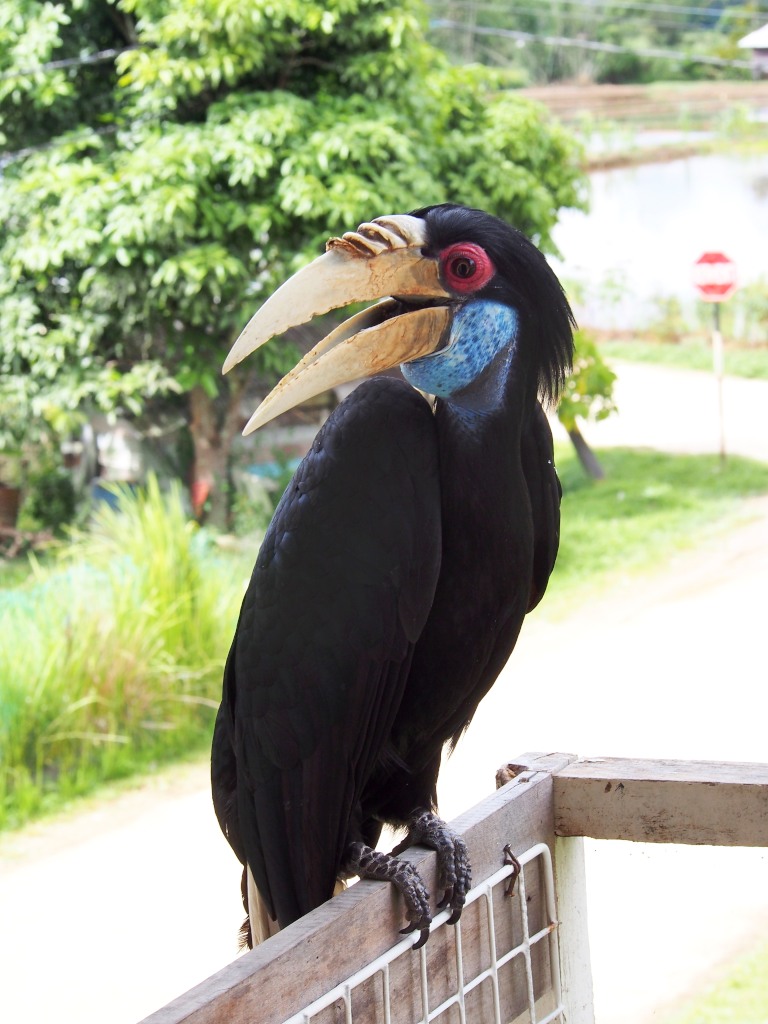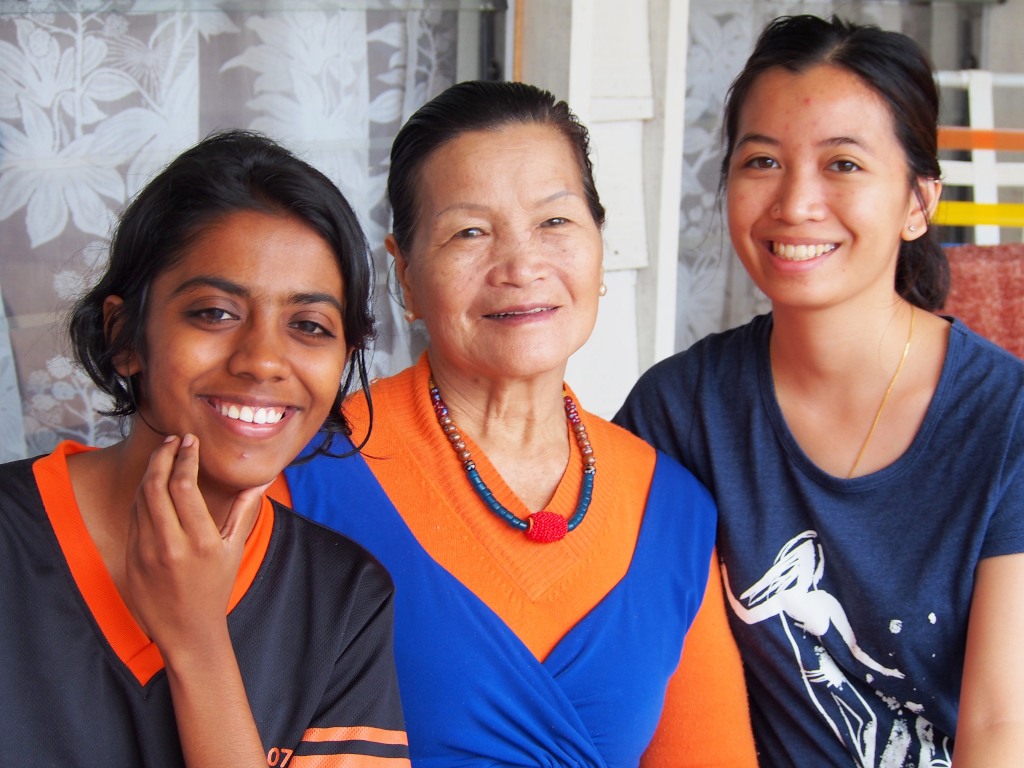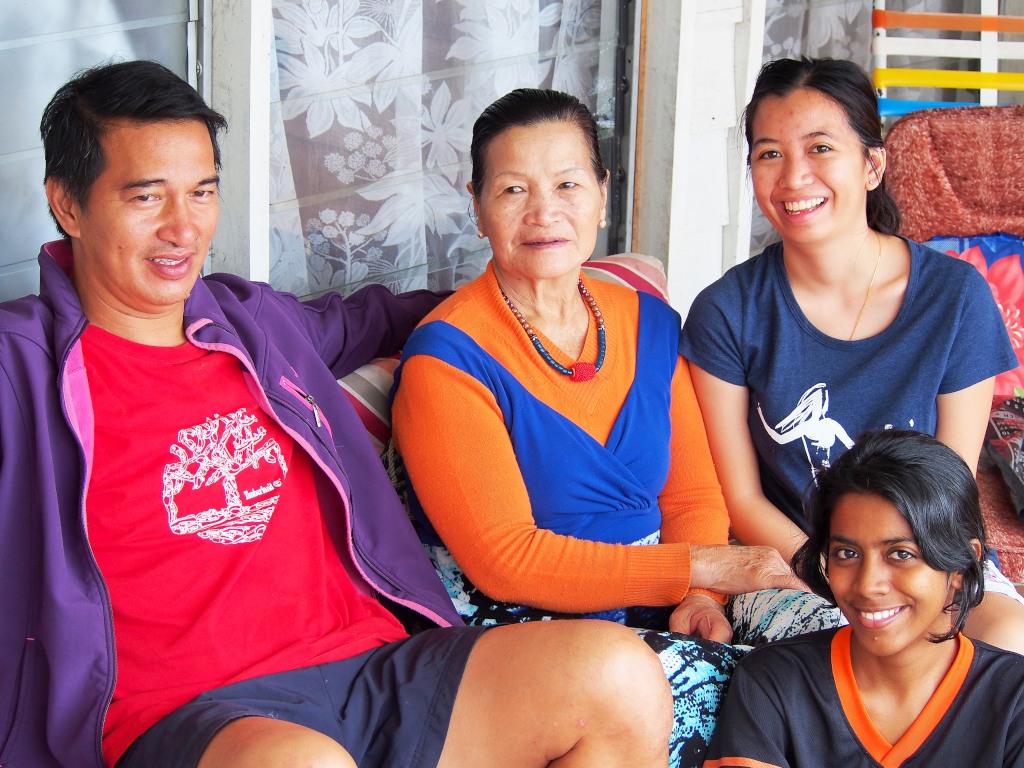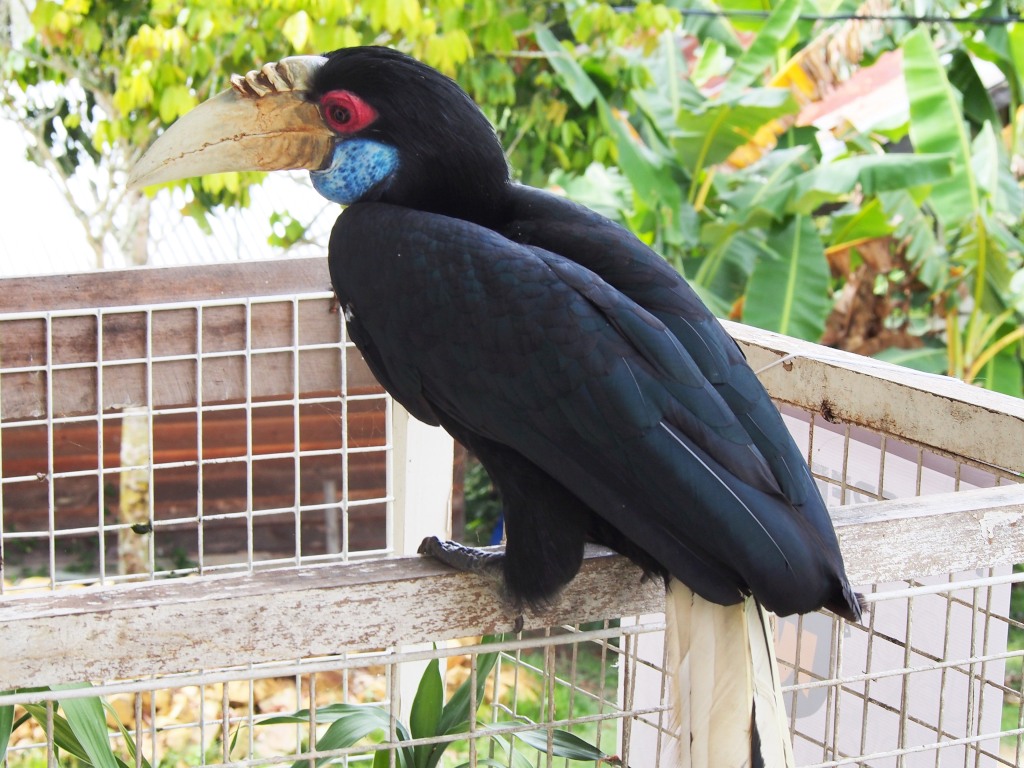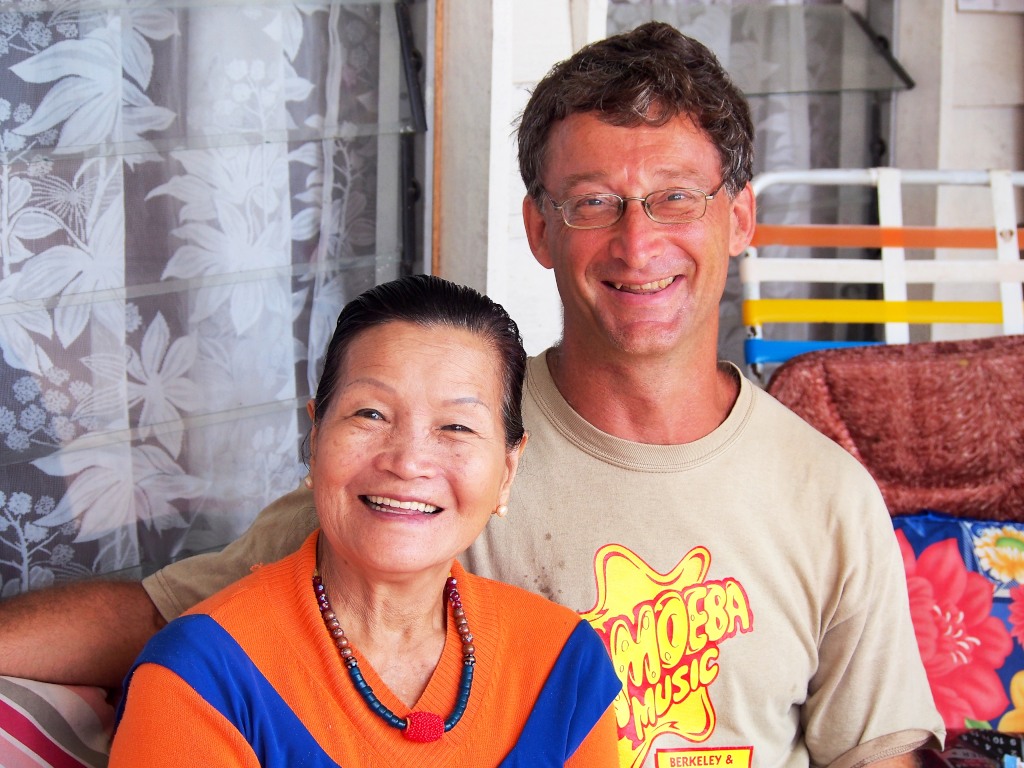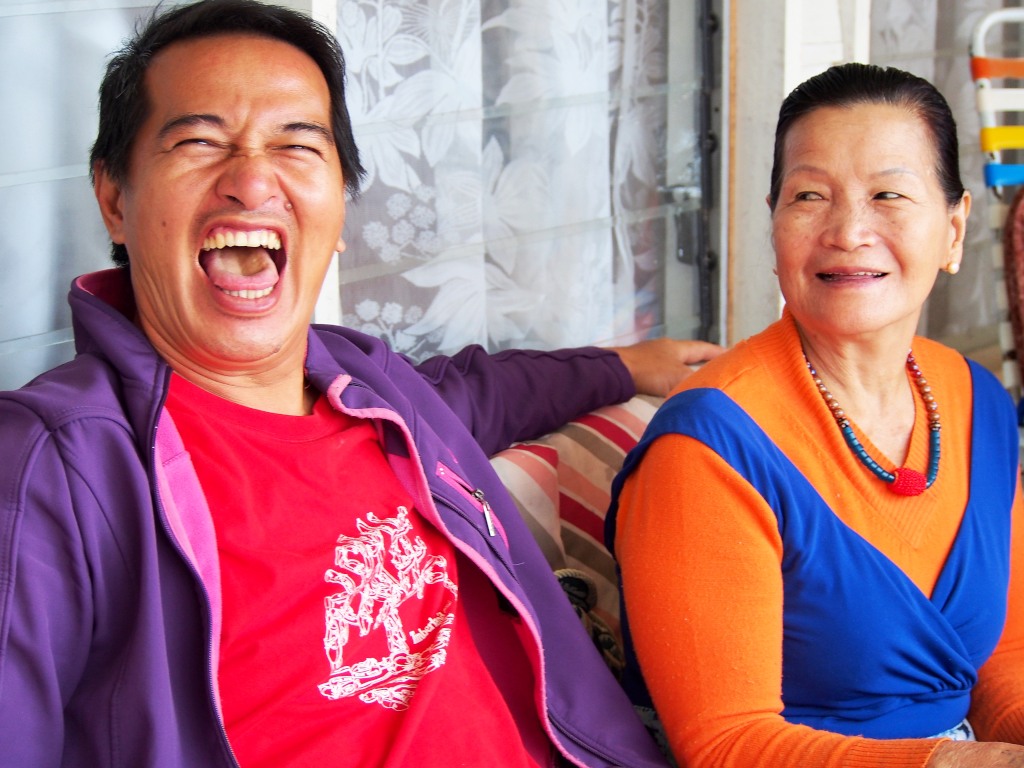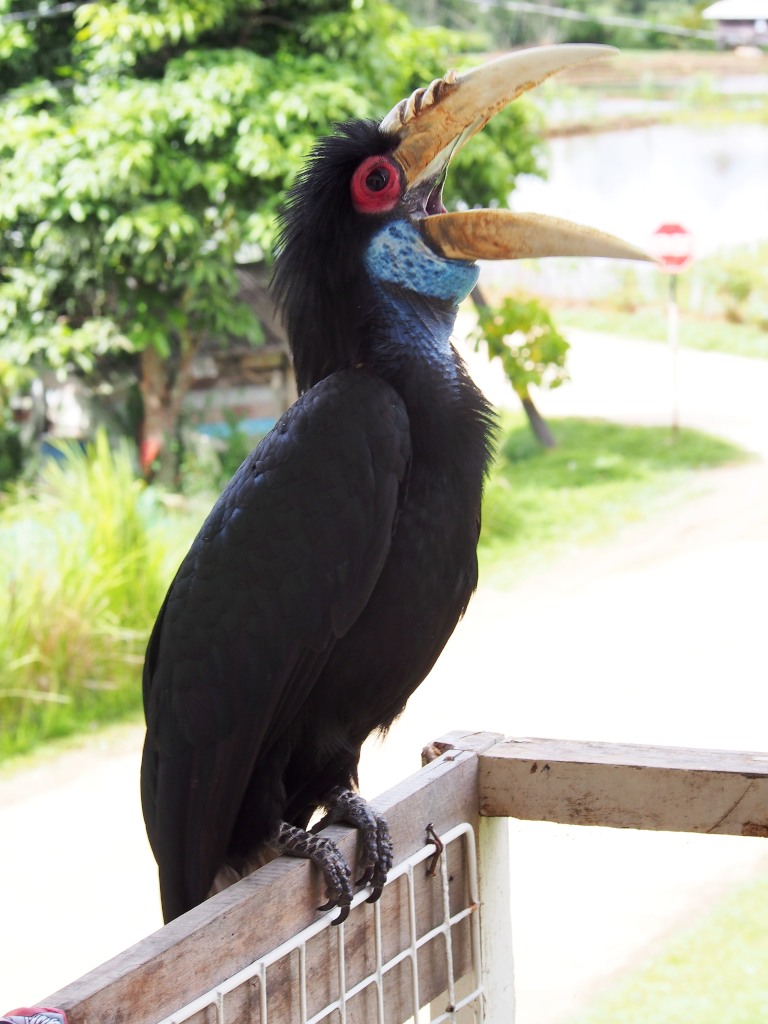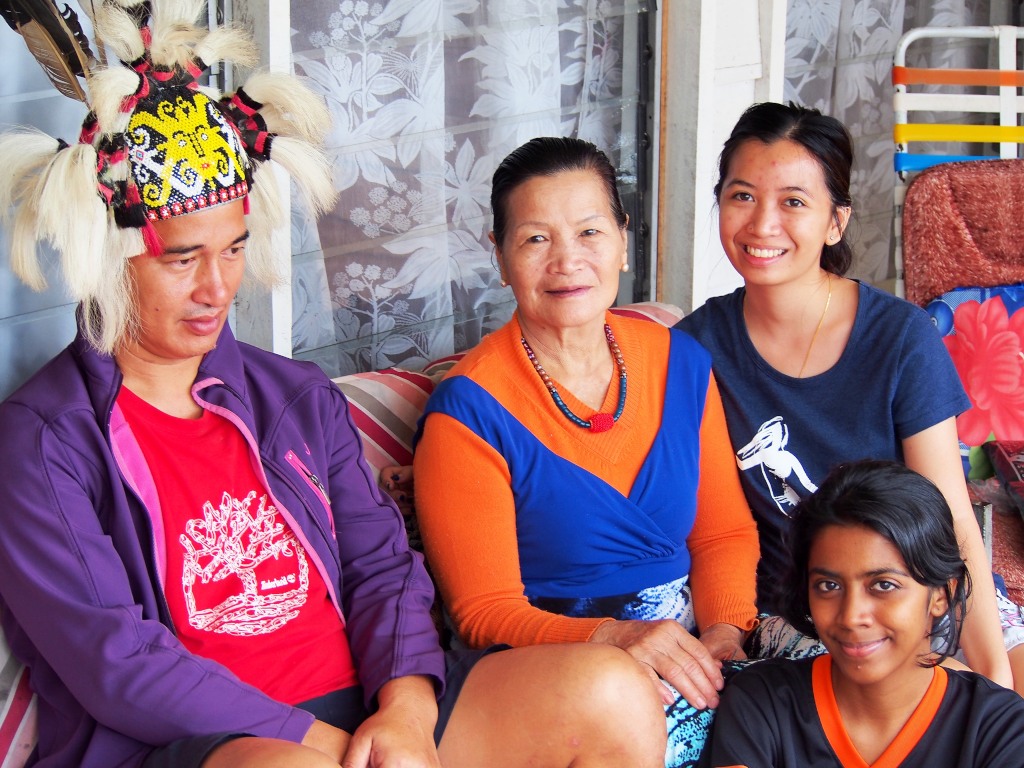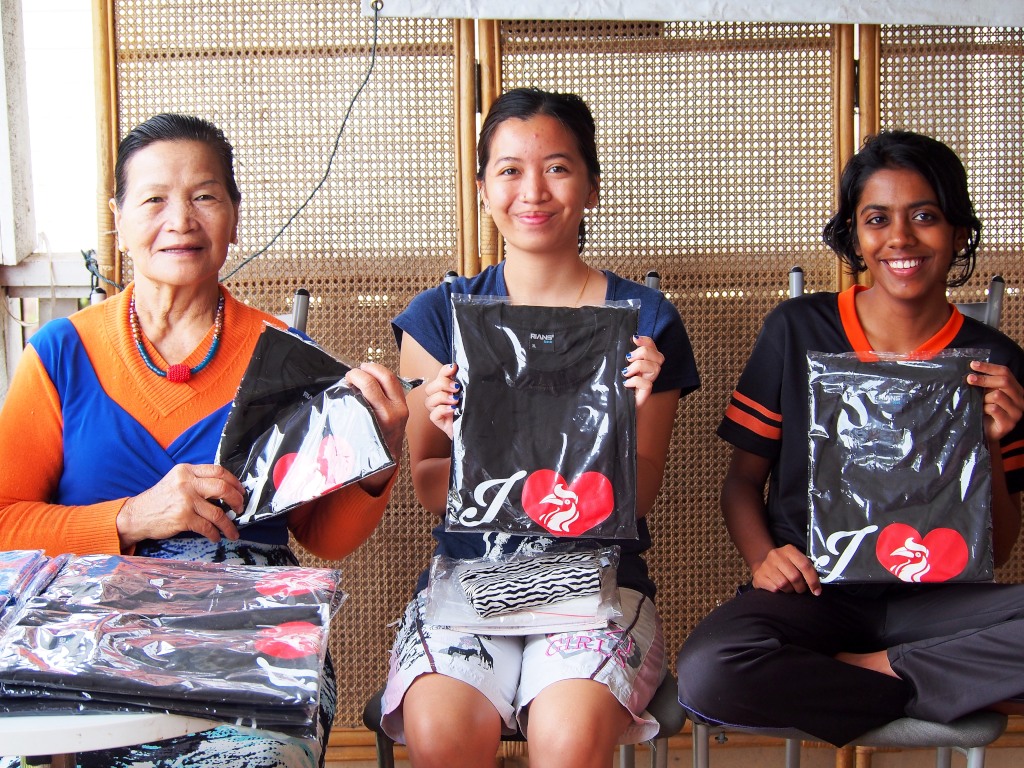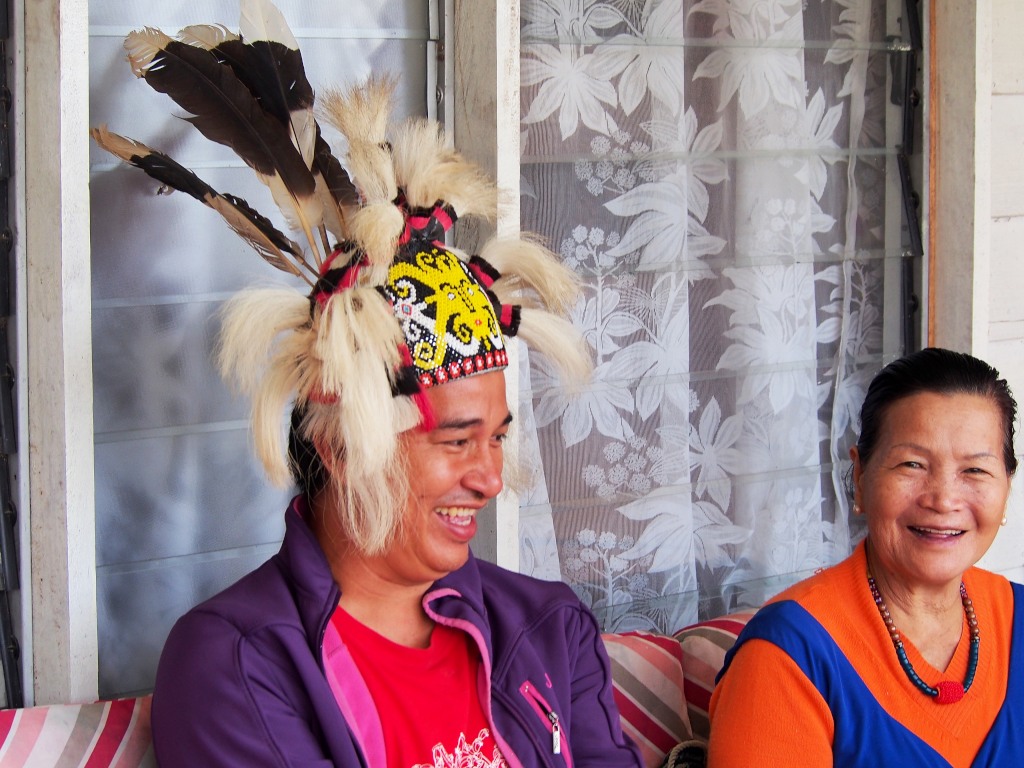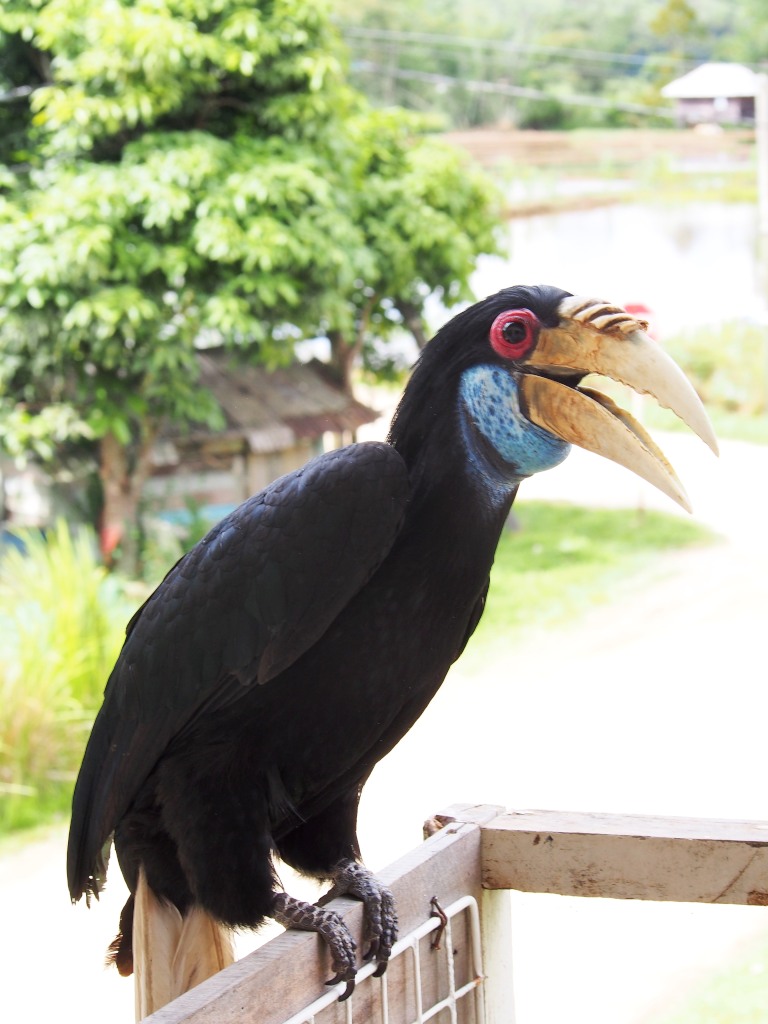May 14th, 2015
After the arduous hike to Pa Lungan and back, a day of rest is in the offing. And I want to enjoy the day at the longhouse, since I am returning to Miri later on today.
The breakfast buffet revolves around the usual common elements, today’s offering consisting of sweetened sticky rice balls coated in sesame, bubur, and small cakes with fish.
I accompany Julian on a quick trip to the bush to cull what turns out to be torch ginger (etlingera elatior), which he showed me the day I arrived, a plant that imbues such a remarkable flavour to the typical food of the area. He cuts some flowers from the bush, then some of the pineapple-shaped fruit from the plant. From the look of the plant and the flowers, it seems like the plant is in the ginger family, while the interior of the buds of the fruit appear to be dragon fruit-like on a minute scale, with flesh that has a distinct coriander flavour.
He picks an enormous mushroom and holds it up for me to see. I would not have expected there to be such savory culinary mushrooms in the jungle, never mind that they are so present in the local cuisine. That said, the manner in which they are cooked seems like a fairly unimaginative way of exploiting what presumably are very flavorful mushrooms. It is also simply amazing how much of food the people here forage from the forest.
Julian returns to the house later with a rifle, discreetly packing it back in a closet. in his room he picks up a longbow and long spear, although I am not sure if it is meant seriously. In this kind of environment, seeing this kind of weaponry being toted around would surely raise some eyebrows, although it should hardly come as much of a surprise, considering we are eating wild game every day. I ask Julian what he caught and he smiles broadly, motioning me to be quiet, pointing in the direction of the WWF participants. I laugh …
There are small gashes on my left foot which are itchy, suggesting that the leeches did get through, although the leech socks should largely have been effective.
The young Indo-Malay woman in the volunteer group tells me she is at the end of high school, but had wanted to take the time to do volunteer work. Following the volunteer commitment, she wants to study aerospace engineering. Irrespective of her career path, she wants to commit her life to doing good deeds.
The young Malay man from Sabah tells me rules are now in place in Sabah to control logging, that is, logging now has to be selective (enrichening logging). Furthermore, every tree that is cut needs to be replaced. Companies are certified, and if their wood is cut in conditions that do not qualify, they cannot sell their wood.
I am thinking that even if the logging companies were to adhere to the letter of the law in the little wild land that is still available in Sabah, the market would still be overwhelmed by illegal logging from Indonesia.
Currently at the longhouse helping with domestic work is Sina Rang’s granddaughter. As she bustles around the kitchen area and dining room, she tells me she is currently studying Psychology in Kuala Lumpur, and would like to work in the field of speech therapy. That being said, she has years of post graduate studies ahead of her.
The young German from Osnabruck is now deeply engrossed in a conversation with one of the young Indian women from the volunteer group – it didn’t take much for them to get into the swing of things! Apparently, the Germans didn’t catch anything yesterday night on the hunting expedition, but did get covered in leeches, which left them more than a bit freaked out. Meanwhile, my own long conversation with the German cuts into the time that I should have been writing, never mind preparing for my departure.
The women from WWF hug each other profusely prior to departing. Sina wears her traditional cap as do many of the elderly women of the community. They parade past us, many with their long ear lobes hanging open with elaborate ear rings.
To announce the communal lunch, Sina Rang knocks on the drum. Then I am told to knock on the drum – but harder!
Johnny Kapong doesn’t show his face today, so the conversation is more benign and relaxed over the healthy food and numerous cups of coffee. I chat with Julian, the man effectively assuming the identity of the longhouse community and related tourism behind the scenes. He is unflappable and relaxed by nature, not surprising, considering Sina Rang’s perennially demure nature.
There is nothing like lounging around the Sina Rang longhouse, alternating between the privacy and comfort of the bedroom and the ongoing congregation at the communal table. The conversation morphs according to who may join of the many different generations of the various branches of the more immediate or distant clan.
Sina, the matriarch of this family and the icon of the longhouse, is the image of serenity and kindness. The sense of calm and beauty of this community really seems to radiate from her, her magic encapsulating the beauty of the Kelabit people. It is a great pleasure to spend my last moments in Bario with her and her son. Even in the short moments in the community I feel like I have built a very special bond to her and her family.
Sina and her granddaughter carefully calculate the bill, I pay, then review the merchandise they have set out for the WWF attendants. Being the crafts junkie that I am, I can’t forgo the opportunity to pick up some amazing examples of local beadwork, although it goes without saying that I have nowhere to really put anything at home.
Small items I can at least carry easily in my backpack, and then this trip is soon coming to an end. But there are only few pieces of interest left, and I suspect that there may be more choice items to be found back in Miri. In the end I select a few beaded drums and small armbands.
A group of core men from the community gather at the family table and engage in banter. I make a catty comment about Johnny Kapong as an excuse to join in the conversation.
One man wearing glasses and cap tells me about the Ecotrek that takes place later on in the year, and lasts one or several weeks. It is comparable to the ultramarathon taking place this weekend, although people have the option of embarking on various stages by various means, be it walking, running, by bicycle or swimming. The point of the trek is not to just hold a sports marathon, but to also expose visitors to the Kelabit to the ecological aspect of the region.
It is not enough to bathe in wild-eyed politics – it is essential to promote concrete events that improve the well-being of the region. An event such as the Ecotrek brings attention to the area, funds, tourists, and also provides educational awareness regarding the environment and indigenous culture.
To make this kind of event a success, it is essential to engage with expertise, with people who are appropriately connected as well. They continue with the discussion of building working community tourism that is effective and involves all members of the community.
Many other types of projects take place here, involving people coming from abroad to do things such as plant trees, which may seem innocuous, but it creates awareness and engagement with the international community.
Another question arises concerning community economics and survival: when areas are gazetted as parks, how do you continue involving people from the region to ensure their livelihood?
Given that we are in the heart of Borneo, not much marketing is needed, as the region is one of the most exotic and remote places in the world. On the other hand, the area suffers from being too far away from the capital and the important politicians.
Another project on the local horizon is the bridging of wilderness parks in Indonesia to create a greater cohesive green area as well as animal migration corridor.
The engaging conversation comes to an end as a number of us are scheduled to leave for the airport. It turns out the man who has dominated the conversation is none other than John Tarawe, a famous indigenous activist from the region.
John is highly articulate and a very important broker for alternative activities that are intended to develop the region in a positive and enfranchising manner. I have been very lucky to run into some of the leading luminaries of the region on this short trip!
I began panicking as I throw things into my bag. I now can’t even find the key to the room, although I suspect someone picked it up while cleaning up. The bracelets I bought have also vanished, and it may be that Sina or her granddaughter threw them back into the original pile.
Sina gives me a pineapple to take along, even though I am already carrying three pineapples that I bought yesterday Pa’ Ukat.
Julian tells me emphatically that we have no time to pick up my jacket at the Jungle Blues Guesthouse, which I forgot yesterday. But we should have lots of time to get to the airport, shouldn’t we … Oh well, the jacket was in rough shape anyway, and someone else should be able to use it.
I make my farewell at the denizens of the longhouse, the farewell to Sina Rang being of course being the most hearfelt and touching.
Her wonderful son Julian ferries us to the airport on the back of his pickup, and then it is time to say goodbye to him as well.
And we are on the plane, and then it takes off, back on the short jaunt back to civilization. Despite the relatively bumpy ride, John Tarawe remains glued to his cell phone.
Upon arrival in Miri, what should have been a routine transaction at the taxi desk turns into an imploring diatribe on behalf of the middle-aged Iban woman from Baram, declaiming the tragedy of her land, the biotope, the flora and fauna lost to the inevitable rampage of oil palm plantations. Her English is halting, but the muted rage in this gentle aboriginal women is unmistakable.
Bario may be impressive in its accomplishments, but it represents a small area, she tells me, and yes, the people in the area are very organized. However, the greater Baram area to the south has been utterly devastated.
She has no trust in politicians, as they are just out for money, although understandably, they are balancing the lure of money against other concerns.
Most would agree in principle to the preservation of the environment, but there is little money to be made off leaving trees standing.
